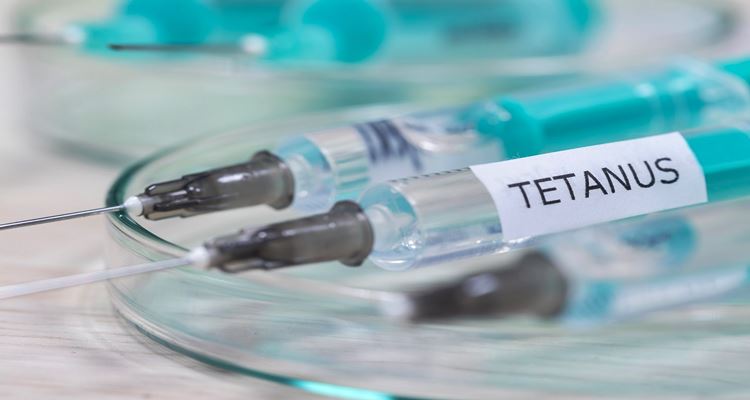EARLY SYMPTOMS OF TETANUS – The lockjaw or tetanus disease is an infection caused by the bacteria Clostridium tetani and here are the signs.
When the bacteria called Clostridium tetani enters the body through an open wound, it produces a toxin that causes painful muscle contractions. Tetanus disease is also called “lockjaw” and here are the early symptoms of this condition.
Tetanus Symptoms – What Is Tetanus and Its Symptoms
What are the tetanus symptoms, a condition commonly known as lockjaw?
TETANUS SYMPTOMS – A serious disease of the nervous system is called tetanus and these are the symptoms of this condition.
This serious condition is caused by the bacterium Clostridium tetani which produces toxins. There’s no cure for this and the severe complications could be life-threatening and could even lead to death. Although there is no cure for it, there are some ways to ease and manage the symptoms.
Meaning, the “treatment” is more focused on managing symptoms and complications until the effects of the toxin get resolved.
How can you get this? Having a wound contaminated with soil or environmental contents, you will be at risk for this condition. Once the bacteria get into the wound, it produces toxins that can affect the nervous system and muscles. This bacteria is usually found in soil, dust, and manure.

What are the symptoms and complications?
According to the Centers For Disease Control and Prevention, the symptoms are:
- Jaw cramping
- Sudden, involuntary muscle spasms — often in the stomach
- Painful muscle stiffness all over the body
- Trouble swallowing
- Seizures (jerking or staring)
- Headache
- Fever and sweating
- Changes in blood pressure and heart rate
The complications based on CDC are:
- Laryngospasm
- Fractures
- Pulmonary embolism
- Aspiration pneumonia
- Breathing difficulty
\What makes this vaccine-preventable disease different from other vaccine-preventable diseases is that it cannot be transferred from one person to another.
It may take months to be completely recovered from this disease. The best way to prevent this is to get a vaccine.
Tetanus can be developed from puncture wounds, gunshot wounds, compound fractures, burns, surgical wounds, animal or insect bites, infected foot ulcers, dental infections, and infected umbilical stumps in newborns.
READ ALSO:
What can you say about this? Let us know!

